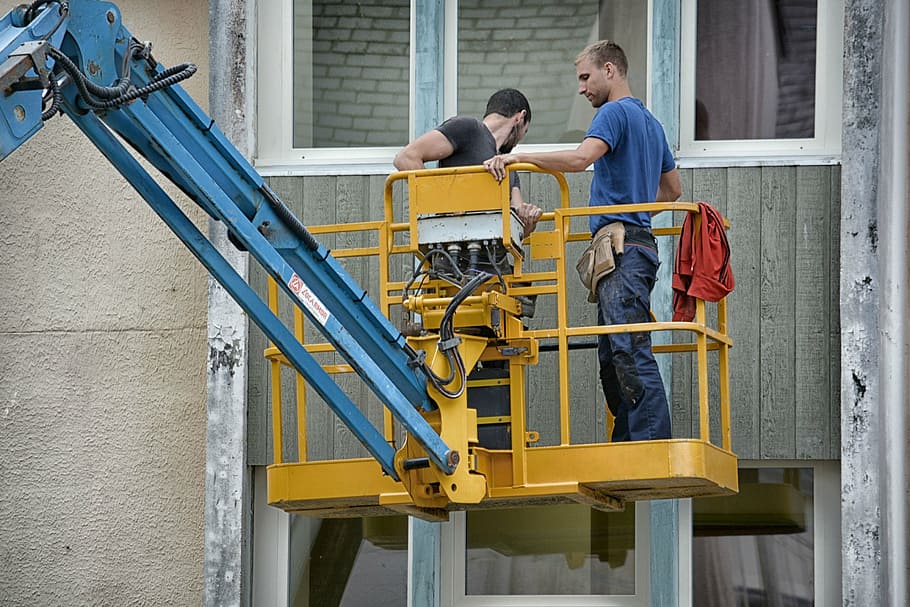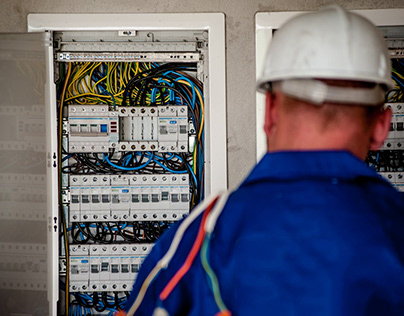HVAC systems can improve indoor air quality by encouraging comfortable temperature and air quality. If you’re looking for an occupation that offers stability, security, opportunities, and stability, then the HVAC sector could be your ideal choice. The expected growth of the HVAC industry has seen a rise in people wanting to become commercial HVAC contractors. In the article below, we will discuss the requirements for the job and the steps to follow to start a career as an HVAC contractor.
Commercial HVAC Contractors
An HVAC or heating, ventilation, and cooling (HVAC) contractor (also known as a “professional”) that carries out the installation, maintenance, and repair of HVAC systems for residential, commercial, and residential buildings. The following are some of the duties associated with this job:
- Control the installation of HVAC systems.
- Troubleshoot, and then perform emergency repairs.
- Clean and alter the cooling systems regularly to time.
- Offer excellent technical and customer service whenever needed.
HVAC technicians carry out the technical tasks, and an HVAC contractor is responsible for the overall process of large projects. Additionally, you must understand the fundamental operations required in the industry to succeed in this position.
HVAC contractors earn on average
Following data from the Bureau of Labor Statistics, the median wage for an HVAC contractor is around fifty thousand US dollars a year. The range of salaries can differ significantly based on many factors like education, experience, certificates, and abilities. The salary range also varies based on the stage you are in your career and the type of job you are in, such as HVAC manager, HVAC technician, HVAC manager, or sales manager for HVAC or air conditioning engineer, among other similar job positions.
How to become a commercial HVAC contractor?
While you can understand the HVAC systems from work experience, contractors who have completed formal educational and professional training are usually more likely to be employed. Here’s a step-by-step instruction to learn what it takes to become an HVAC contractor:
To deal with some refrigerants, you need certification from the Environmental Protection Agency (EPA). Many employers want you to have a few years of experience in the field and knowledge of direct digital control (DDC) systems since your duties as a commercial HVAC technician include installing and maintaining larger, more complicated HVAC equipment.
1. Get a high-school diploma
The first step is to obtain a high school degree if you want to work in HVAC work. Select relevant subjects such as computer science, physics, and math, and then enroll in technical classes in plumbing, electronics, and metalwork to increase your skills.
Read More: Is It Expensive to Live In Hawaii? A Complete Guide About Moving And Living in Hawaii.
2. Inscribe yourself to a course of instruction
When you’ve completed the high school certificate, you can pursue an official certificate or training program at any college to improve your opportunities in the job market. Suppose you’re planning on obtaining the associate’s diploma. In that case, you could take a course of training or a certificate course from the community colleges or trade school after you have completed your high school diploma or GED.
It is essential to determine what the program will award you the opportunity to earn a degree or certificate upon completion of the course. It can take between six months to two years to finish the formal training, based on your selected program. Some of the subjects you’ll take in this program include:
- Operating HVAC equipment.
- Troubleshooting and installing HVAC systems for residential or commercial use.
- Handling refrigerants.
- Understanding and reading blueprints.
- Installation and repair of electrical wiring.
- Application of basic principles to actual situations.
Alongside these courses, there are other options to choose computers or electronics as additional subjects that will help you learn about the complexities of modern HVAC equipment. If you’re planning to start your own company shortly, you should consider joining business management courses and accounting classes.

3. Begin an apprenticeship
Participating in the ranks of an HVAC contractor in the form of an apprentice is beneficial to receive in-the-field training. To be a part of the apprenticeship programs, you must satisfy the following conditions:
- At a minimum, you must have the equivalent of a high school diploma or GED.
- Have a driver’s license.
- Take a math’s test (optional).
- Do a drug test.
You may also manage the apprenticeship while pursuing your diploma or degree. Apprenticeships are a great way to start early in your career and learn what is involved in work while expanding your network.
4. Get EPA certified
EPA is the United States Environmental Protection Agency which makes sure that no business is causing harm to the environment or the water or the soil. HVAC contractors operate in cooling systems that use refrigerants to harm the environment if mishandled. It’s an excellent option to be EPA accredited to work as an HVAC contractor.
You need to pass the test to obtain an EPA certificate. The exam covers subjects such as recycling refrigerants, safety recycling of refrigerant products, and removal of refrigerants. The certificate can be obtained from any college or community college accredited by the EPA and trade schools.
5. Find a state-approved certificate
Every state has different specifications and qualifications to obtain a license. They all require HVAC contractors to get licensure after gaining the required work experience. They also investigate your criminal history and require risk insurance or performance bonds. A minimum age requirement may be required when obtaining the license.
To be eligible for the HVAC licensing test To be eligible for the HVAC license exam, you must be able to demonstrate at the very least four years of valuable knowledge. The state board will also need to approve your application before you are allowed to sit for the test.
6. Consider getting certifications
If you’re an authorized HVAC contractor, it’s an excellent idea to enhance your abilities by obtaining professional certifications. A few professional associations are Air Conditioning, Heating and Refrigeration Institute, North American Technician Excellence (NATE), HVAC Excellence, and ACCA, which stands for Air Conditioning Contractors of America (ACCA), offers various HVAC professional certifications to boost the credibility of an HVAC contractor.
NATE certification exams are a viral technical test that tests your general HVAC expertise and specialized knowledge in installation and maintenance. ACCI’s High-Quality Installation standard certification proves your ability to develop HVAC systems suitable for residential buildings.
These certificates play a significant aspect in progressing in your HVAC job as a contractor. If you join a firm as a technician, HVAC contractor, or even start your own business, many people would instead hire an experienced, qualified HVAC contractor.
7. Obtain work experience
Suppose you’re about to graduate from college or high school with a degree from an academic institution in your field. In that case, you may want to think about the possibility of enrolling in an apprenticeship program. Anyone who has completed instruction can apply to companies to work with more experienced technicians in an entry-level job.
The minimum requirement for work varies between states. It usually ranges from two years (if you had an apprentice) to 7 years (if you didn’t go through any training course). It is possible to gain experience when working with contractors. For more information, it is also possible to check the state’s requirements where you would like to work.
Benefits of Commercial HVAC Contractors
- Expertise and Experience: Commercial HVAC contractors bring knowledge and experience to the table, ensuring that your HVAC system is installed, maintained, and repaired to the highest standards. With years of training and hands-on experience, they are equipped to handle any issue with your HVAC system.
- Cost Savings: Hiring a commercial HVAC contractor can help you save money in the long run. They can install an energy-efficient system and maintain it to keep it running smoothly, reducing the need for costly repairs down the line.
- Professionalism and Quality: Commercial HVAC contractors take pride in their work and always strive to provide the highest professionalism and quality. They use top-of-the-line equipment and materials and follow industry best practices to ensure your HVAC system is reliable and efficient.
Conclusion
These are the standard steps to becoming commercial HVAC contractors. It is a promising career when you have an approach based on problem-solving. An HVAC contractor can perform a variety of jobs across the nation, which improves your prospects of advancement.












